
RULES
In both pro sumo and international sumo, the rules are very simple: either force your opponent out of the 15-foot diameter “dohyo” (sumo ring) or make your opponent touch the ground with any part of the body other than the soles of the feet.
Punching, gouging, and kicking are prohibited, but slapping and tripping are allowed. It is legal to grab the “mawashi” (sumo belt) anywhere around the waist, but not in the groin area. Hair-pulling is also banned.
FORBIDDEN TECHNIQUES
- Punching: While thrusting with an open hand is OK, punching is prohibited.
- Kicking: Tripping or sweeping the legs is OK, but kicking is not allowed.
- Grabbing below the waist: Gripping the belt around the waist is fine, but not in the groin or rear areas.
- Hair-pulling: It’s illegal to pull the hair.
- Hari-te (excessive): Thrusting forward or slight slapping is OK, but you can not do a wide-arc, 90-degree slap.
- Choking: It’s fine to thrust at the throat, but no gripping the throat or choking with the arm.
- Sabaori: With tight grip on your opponent’s belt, it’s forbidden to crush him from above, crumpling his lower back.
- Locked fingers: In bear-hug pose, locking your fingers in a “prayer” grip around your foe’s back is not allowed.
SUMO MOVEMENTS
There are many variations, but here are the basic movements in sumo:
PUSHING: The fundamental action in sumo is pushing, and many other movements derive from an initial, strong forward attack. Stay low and compact, as you smash forward.
THRUSTING: Similar to pushing, but a thrusting attack keeps the opponent at a distance, with repeated thrusts. Rapidity of thrusts is essential, not allowing the adversary to recover.
FORCING OUT: Many other forward movements involve grabbing the opponent’s belt, or locking up the opponent’s body, clamping down, and then forcing him out.
THROWS: Initial pushing attacks are often followed with pivoting throws, using hinge points on an opponent’s belt, arms, or legs. Timing is most important, reacting to the opponent’s energy.
LIFTING: When timing and positioning are right, it’s also possible to lift the adversary in the air, dominating the match.
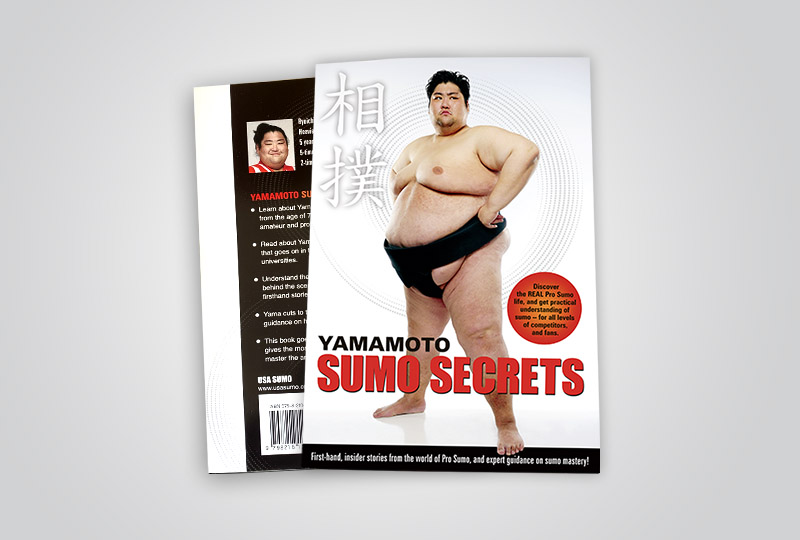
YAMAMOTO SUMO SECRETS – Expert Sumo Guidance
This book provides real understanding on training and developing techniques. Read amazing stories about Yama’s own sumo life.
TECHNIQUES
Pro sumo currently recognizes 82 “kimarite” (winning techniques), but nearly all victories are achieved by the most popular dozen or so kimarite. Techniques are very important in sumo, since technical expertise enables experienced sumo wrestlers to defeat opponents who are larger, stronger, or faster.
Sumo wrestlers often rely on strength and speed to push an opponent out quickly, or use balance and technique to flip, trip, or maneuver the opponent to the ground. Here are some examples of common winning techniques:
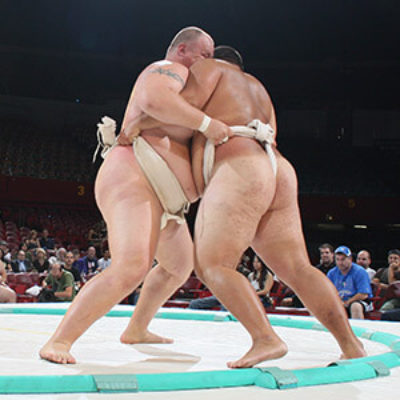
YORI-KIRI (front force-out)
Get a grip on your opponent and push him straight out of the ring. It’s critical to lock up tightly with your opponent to control him as you push.
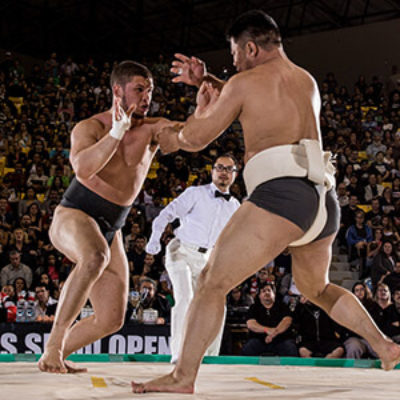
OSHI-DASHI (push-out)
Smash into your opponent, to knock him out of the ring. Don’t let your opponent grab your belt, as you keep him off balance and force him out.
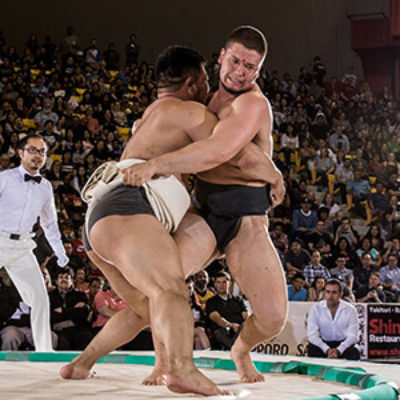
UWATE-NAGE (outside-belt throw)
Get an outside grip on the belt, and flip your opponent down, as you pivot your hips.
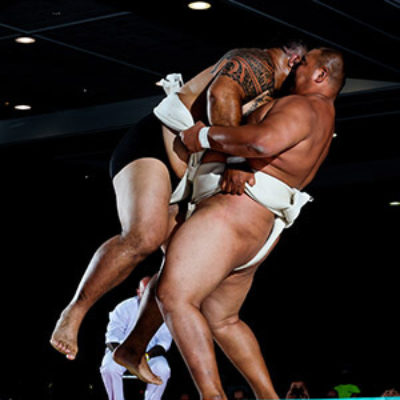
TSURI-DASHI (lift-out)
Using your opponent’s belt, lift him in the air and take him out of the ring.
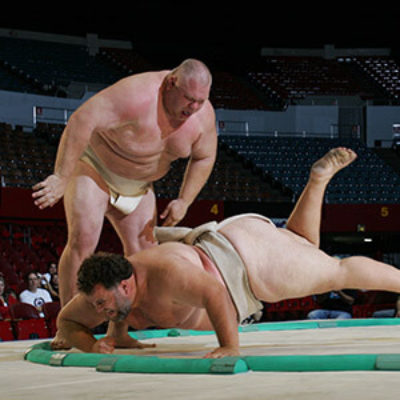
HIKI-TAOSHI (hand pull down)
As the opponent charges toward you, grab his arm and pull him to the ground. This is a common way to stop a charge.
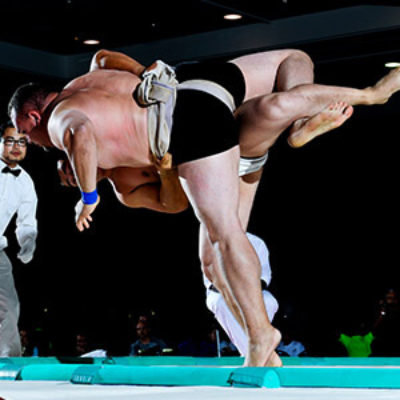
SOTO-GAKE (outside leg trip)
Wrap your leg around your opponent’s, and trip him so he falls.
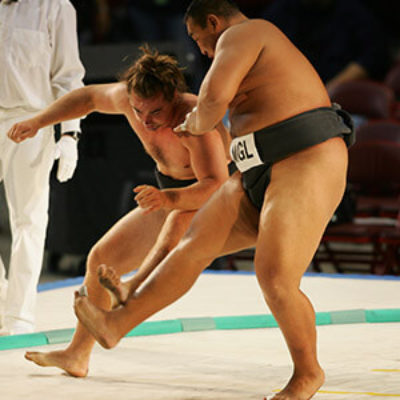
SUSO-HARAI (rear footsweep)
Sweep the back of your opponent’s leg to knock him off-balance.
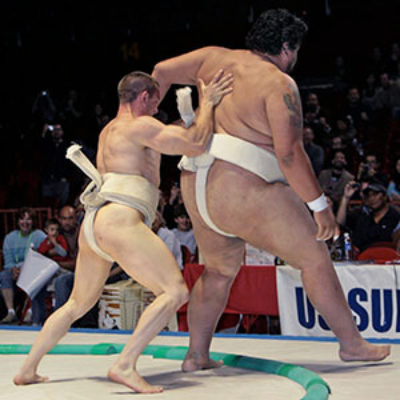
OKURI-DASHI (rear push out)
Maneuver behind your opponent, and push him out of the ring.
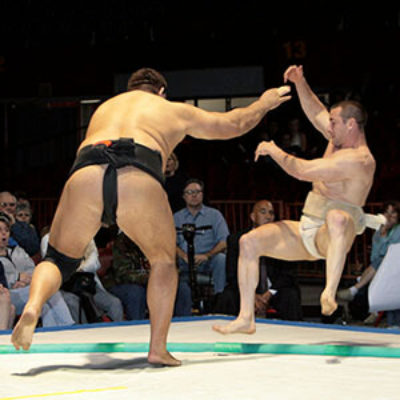
TSUKI-DASHI (frontal thrust out)
Force your opponent backwards and out of the ring with thrusts and slaps.
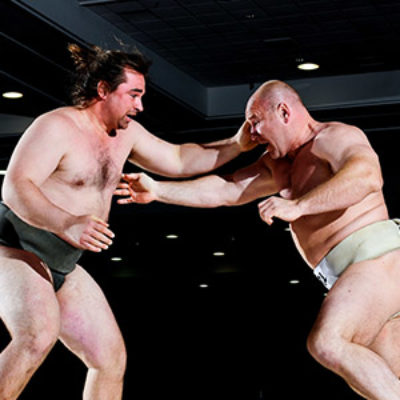
HARITE (slapping)
Slap your opponent on the side of the face, to briefly distract him. It’s useful to disrupt an attacker..
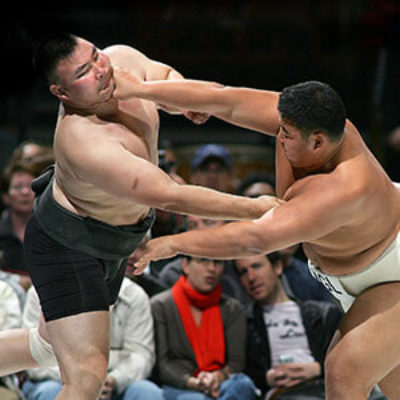
NODOWA (throat-thrust)
Thrust your open palm into the opponent’s throat to push his center of gravity up and backwards.
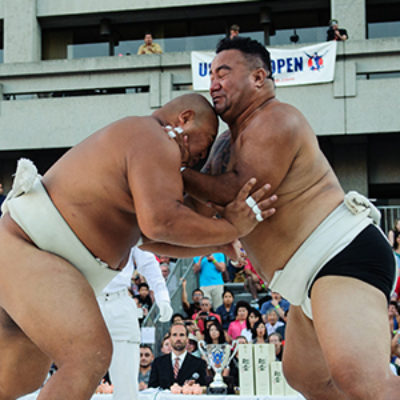
OTTSUKE (arm clamp-down)
With bent elbow, thrust up into your opponent’s arm or armpit, to block his attack and stop him from effectively using his arm.